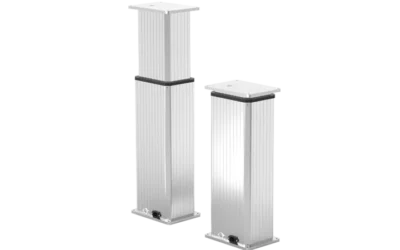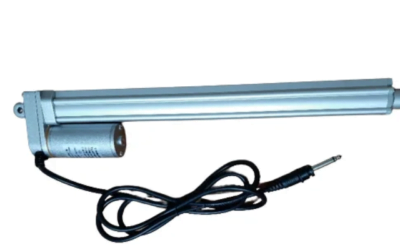SolutioNs
This page is a guide to understand the actuator meaning and how they can be used to improve performance and efficiency in industrial processes. We provide expert advice and creative solutions to help you enhance the performance of your machinery and equipment.
Powerful Printers with the Electric Actuator
In recent years, the field of 3D printing has experienced significant advancements and has revolutionized various industries. One crucial component that plays a vital role in the precise movements and operations of printers is the electric actuator. Electric actuators...
Electric Actuator Applications used in the Various Areas
Electric actuator, revolutionizing the way mechanical systems are controlled and operated, find extensive utilization in a myriad of fields and industries. This comprehensive list of applications aims to highlight the versatility and wide-ranging functionality of...
Powerful Dyeing Machines with Electric Actuator
Dyeing machines play a crucial role in the textile industry, enabling efficient and precise coloring of fabrics. One of the key components that contribute to the smooth operation of these machines is the electric actuator. Electric actuators provide the necessary...
Lift Door Open/Close system for Powerful Electric Actuator
Lift doors play a crucial role in the smooth and efficient operation of elevators. They ensure the safety and convenience of passengers by providing a secure barrier between the elevator shaft and the outside environment. One of the key components that enable the...
Electric Actuator in the Steering Systems with Precision
The steering system is an essential component of any car, enabling the driver to navigate and control the vehicle's direction. Over the years, advancements in automotive technology have led to the development of electric actuators for steering systems, replacing...
Linear Actuator in the Car Roof Open/Close: Convertible Cars
Convertible cars have always held a special place in the hearts of automotive enthusiasts. The allure of open-top driving, the wind in your hair, and the freedom of the open road are experiences that many people cherish. In the past, manually opening and closing the...
Frequently Asked Questions(FAQ)
What Applications are Linear Actuators commonly used in?
How can Linear Actuators be used in Robotics and Automation?
Are electric actuators energy-efficient?
Yes, electric actuators are generally energy-efficient due to the high efficiency of electric motors and the ability to control their movement accurately. They consume energy only when actively operating, and their power consumption can be optimized through proper control strategies, resulting in energy savings compared to other actuation technologies.
Are there any maintenance requirements for electric actuators?
Electric actuators generally require less maintenance compared to hydraulic or pneumatic actuators. However, routine inspections, lubrication of moving parts (if applicable), and periodic checks of electrical connections are recommended. It is also important to follow the manufacturer’s guidelines for specific maintenance requirements.
Can electric actuators be controlled remotely?
Yes, electric actuators can be controlled remotely using various methods. They can be operated using wired control signals, such as analog or digital inputs from a controller. Additionally, wireless control options, such as radio frequency or Bluetooth, can also be used for remote actuator control.
What factors should be considered when selecting an electric actuator?
When selecting an electric actuator, factors to consider include the required motion (linear or rotary), load capacity, speed and acceleration requirements, environmental conditions (such as temperature or hazardous areas), power supply availability, control options, and compatibility with the application and system.






